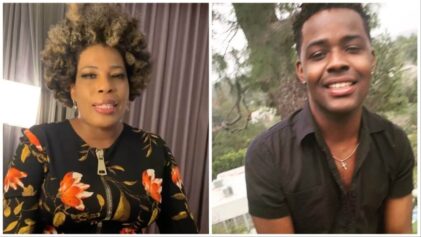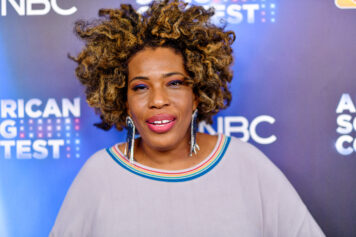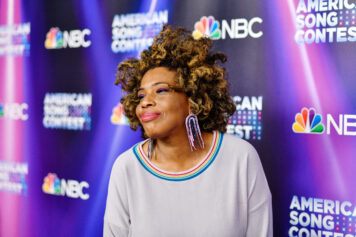Having grown up in Ohio, a state that’s been home to renowned soul groups like Heatwave, Zapp, and The Isley Brothers, it’s no surprise that Macy Gray’s body of work continues in the area’s rich musical tradition. But the singer-turned-actress also has a love of multiple musical genres, a love that resulted in her latest studio effort: an album of covers, aptly titled, “Covered.”
In celebration of Black Music Month, the Grammy Award-winning artist opened up to The Huffington Post about recording the album and how black music has influenced her life and career.
What inspired you to record your sixth studio album developed from previously released material?
It’s just something that I always wanted to do. I was looking at these Nina Simone covers on YouTube and I was just inspired by the way she would take a song and make it completely her own. She did a cover of Frank Sinatra’s “My Way” and she completely made it into a Nina Simone song. I just thought that was awesome and that it would be a great challenge for me to try it and so we had this idea to take modern rock songs and turn them into proper soul songs. We worked on it for about three weeks and it was something that we had never done before so I was really excited to do it.
You also managed to land Idris Elba, Nicole Scherzinger, and MC Lyte for the album’s skits. How did the process come about?
We were in the studio acting stupid and the first skit that we did came out really funny, so we just decided to make them funny. I did a duet with Idris, and then the other skit is with MC Lyte. But they’re all really funny and they’re all just giving me advice on what I should do next in my career.
As June marks Black Music Month, can you talk about what impact various genres affected your life while growing up?
When you’re a kid, you get stuck with all of your parent’s music. My dad was a huge James Brown and Tina Turner fan, so I heard all of that old soul music. And then my mom was into all of the girl singers like Gladys Knight, Dionne Warwick. And then when I was in grade school, that’s when hip-hop came out and I remember everyone knew all of the Sugar Hill Gang’s songs. Everybody was freaking out over hip-hop. I didn’t really get into rock ‘n’ roll until MTV. I was lucky enough to grow up at a time where music wasn’t so segregated. So I think that’s why my music is different, because I heard so much growing up.
Speaking of music television, how much did Don Cornelius and the creation of “Soul Train” influence your style and taste in music?
“Soul Train” was everything. We used to run home and watch it on Saturdays. That’s how I got to know a lot of artists and all the latest dances back then. And I actually did “Soul Train” once, and I met him [Don Cornelius]. He had a huge impact on black music.
What was that experience like, appearing on “Soul Train”?
It was wild because I have never really performed to a [prerecorded] track. So I hadn’t done that yet, and I was really nervous. And it was a different crowd for me, because up until then most of my audiences were white. And Don Cornelius was there so I was kind of tripping out that day.
In your opinion, what do you think “black music” means among today’s vast range of musical genres?
Well now, it’s the whole world. Every song I think incorporates black music. Rock ‘n’ roll is black music, most people don’t acknowledge it as that, but it’s everything. Hip-hop is also in a lot of different music. Tim McGraw had a song that had Lil Wayne on it. Everybody has taken hip-hop and used it in some way. It’s a little bit more exploited now. It’s not as authentic as it used to be, it’s definitely not underground anymore. It really has taken over as pop music now and it took over to a point where nothing else exists. But I think that’s a good thing. There’s so much music out there and I wish that they were more open to different things in black music.
Source: Brennan Williams, Huff Post


